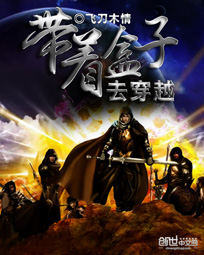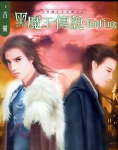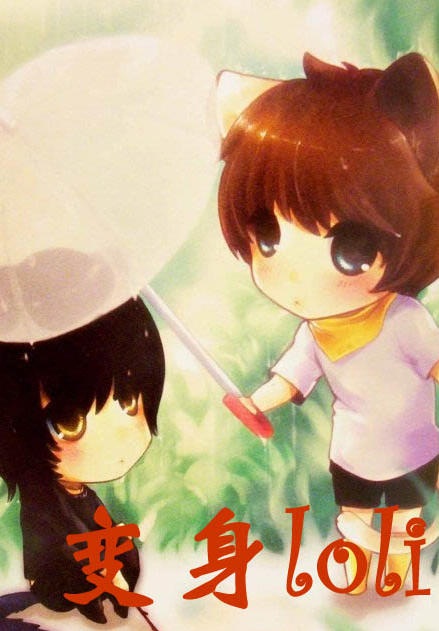wgolding.lordoftheflies-第56部分
按键盘上方向键 ← 或 → 可快速上下翻页,按键盘上的 Enter 键可回到本书目录页,按键盘上方向键 ↑ 可回到本页顶部!
————未阅读完?加入书签已便下次继续阅读!
at threatens a fable is utterly different; in fact the precise opposite。 When a fable is poor…geometrically projected again…it is bare and diagrammatic; insufficiently clothed in its garment of actuality; and in turn its appeal is extra…aesthetic and narrow。 Satires like Animal Farm are of this kind。
It will be said that any such distinction must be a neutral one; and that the best novels are fictions which have managed to retain their due share of the fable's coherence and order。 No doubt this is true。 But it also seems to be true that novels can go a good deal farther'; without serious damage; in the direction of fiction than they can in the direction of fable; and this suggests that fiction is a much more congenial mode for the novelist than fable can ever be。 The trouble with the mode of fable is that it is constricting。 As soon as a novelist has a particular end in view the materials from which he may choose begin to shrink; and to dispose themselves toward that end。 。 。 。 The fact is that a novelist depends ultimately not only on the richness of his materials but on the richness of his interests too; and fable; by tying these to a specific end; tends to reduce both。 Even the most chaotic fiction will have some sort of emergent meaning; provided it is a full and viable reflection of the life from which it derives; if only because the unconscious preoccupations of the novelist will help to impart such meaning to it; drawing it into certain lines like iron filing sprinkled in a magnetic field。 Fables; however; can only be submerged in actuality with difficulty; and they are liable to bob up again like corks; in all their plain explicit…ness。 It may even be true to say that they are best embodied in short stories; where' economy is vital and 〃pointlessness〃 (except for its brevity) paratively intolerable。
***
Lord of the Flies; which appeared in 1954; is set on an imaginary South Sea island; and until the last three pages the only characters in it are boys。 They have apparently been evacuated from Britain; where an atomic war is raging; and are accidentally stranded on the island without an adult supervisor。 The administrative duties of their society (which includes a number of 〃littluns;〃 aged about six) devolve upon their elected leader; a boy of twelve named Ralph; who is assisted by a responsible; unattractive boy called Piggy; but as time passes an independent party grows up; the 〃hunters;〃 led by an angular ex…choir leader named Jack Merridew。 This party; soon habituated to the shedding of animal blood; recedes farther and farther from the standards of civilization which Ralph and Piggy are straining to preserve; and before very long it is transformed into a savage group of outlaws with a costume and a ritual of their own。 In the course of one of their dance…feasts; drunk with tribal excitement; they are responsible for killing the one individual on the island who has a real insight into the problems of their lives; a frail boy called Simon; subject to fainting fits; and after this more or less intentional sacrifice they lose all sense of restraint and bee a band of criminal marauders; a threat to everyone on the island outside their own tribe。 Piggy is murdered by their self…constituted witch doctor and torturer; the secretive and sinister Roger; and Ralph is hunted by them across the island like the pigs they are accustomed to kill。 Before they can kill and decapitate him a naval detachment arrives and takes charge of all the children who have survived。
It is obvious that this conclusion is not a concession to readers who require a happy ending…only an idiot will suppose that the book ends happily…but a deliberate device by which to throw the story into focus。 With the appearance of the naval officer the bloodthirsty hunters are instantly reduced to a group of painted urchins led by 〃a little boy who wore the remains of an extraordinary black cap;〃 yet the reduction cannot expunge the knowledge of what they have done and meant to do。 The abrupt return to childhood; to insignificance; underscores the argument of the narrative: that Evil is inherent in the human mind itself; whatever innocence may cloak it; ready to put forth its strength as soon as the occasion is propitious。 This is Golding's theme; and it takes on a frightful force by being presented in juvenile terms; in a setting that is twice deliberately likened to the sunny Coral Island of R。 M。 Ballantyne。2 The boys' society represents; in embryo; the society of the adult world; their impulses and convictions are those of adults incisively abridged; and the whole narrative is a powerfully ironic mentary on the nature of Man; an accusation levelled at us all。 There are no excuses for placency in the fretful conscientiousness of Ralph; the leader; nor in Piggy's anxious monsense; nor are the miscreants made to seem exceptional。 When he first encounters a pig; Jack Merridew is quite incapable of harming it; 〃because of the enormity of the knife descending and cutting into living flesh;〃 and even the delinquent Roger is at first restrained by the taboos of 〃parents and school and policemen and the law。〃 Strip these away and even Ralph might be a hunter: it is his duties as a leader that save him; rather than any intrinsic virtue in himself。3 Like any orthodox moralist Golding insists that Man is a fallen creature; but he refuses to hypostatize Evil or to locate it in a dimension of its own。 On the contrary Beelzebub; Lord of the Flies; is Roger and Jack and you and I; ready to declare himself as soon as we permit him to。
The intentness with which this thesis is developed leaves
2。A discussion of the relationship between Ballantyne's novel The Coral Island; published in 1857 in England; and Lord of the Flies occurs in Carl Niemeyer's 〃The Coral Island Revisited;〃 College English; 22 (January; 1961); 241…245。 Reprinted in this volume; pp。 217…223。…Eds。
3。 As an illustration of this argument; note Ralph's actions when the boys attack Robert as the substitute pig; p。 106 and when Simon is killed as the beast; p。 141。…Eds。
no doubt that the novel is a fable; a deliberate translation of a proposition into the dramatized terms of art; and as usual we have to ask ourselves how resourceful and plete the translation has been; how fully the; thesis has been absorbed and rendered implicit in the tale as it is told。 A writer of fables will heat his story at the fire of his convictions; but when he has finished; the story must glow apart; generating its own heat from within。 Golding himself provides a criterion for judgment here; for he offers a striking example of how plete the translation of a statement into plastic terms can be。 Soon after their arrival the children develop an irrational suspicion that there is a predatory beast at large on the island。 This has of course no real existence; as Piggy for one points out; but to the littluns it is almost as tangible as their castles in the sand; and most of the older boys are afraid they may be right。 One night when all are sleeping there is an air battle ten miles above the sea and a parachuted man; already dead; es drifting down through the darkness; to settle among the rocks that crown the island's only mountain。 There the corpse lies unnoticed; rising and falling with the gusts of the wind; its harness snagged on the bushes and its parachute distending and collapsing。 When it is discovered and the frightened boys mistake it for the beast; the sequence is natural and convincing; yet the implicit statement is quite unmistakable too。 The inprehensible threat which has hung over them is; so to speak; identified and explained: a nameless figure who is Man himself; the boys' own natures; the something that all humans have in mon。
This is finely done and needs no further ment; but unhappily the explicit ment has already been provided; in Simon's halting explanation of the beast's identity: 〃What I mean is 。。。 maybe it's only us。〃 And a little later we are told that 〃However Simon thought of the beast; there rose before his inward sight the picture of a human at once heroic and sick。〃 This over…explicitness is my main criticism of what is in many ways a work of real distinction; and for two reasons it appe


![[LOL]爱的双排封面](http://www.9wshu.net/cover/12/12832.jpg)



